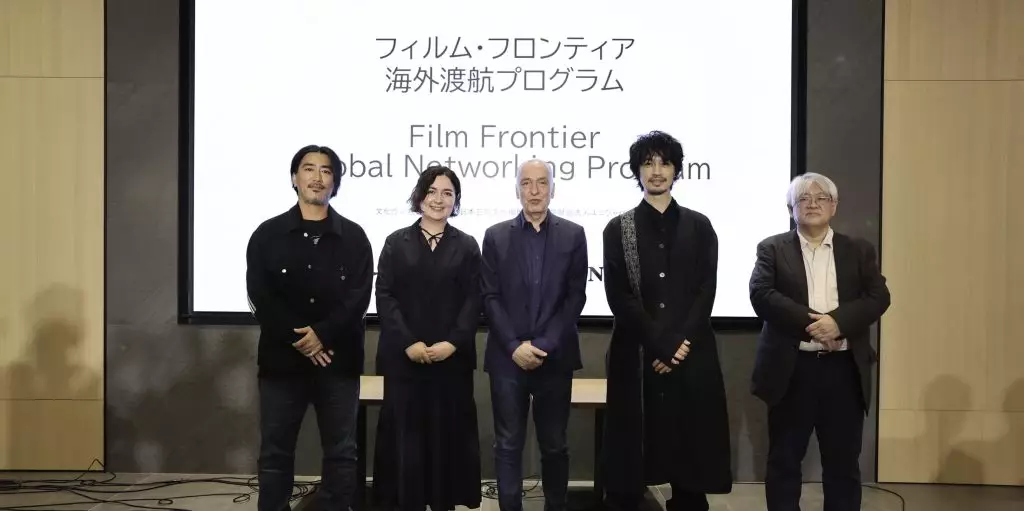In an ambitious move to foster the talent of Japanese filmmakers, Japan’s Agency for Cultural Affairs has announced the launch of the Film Frontier Global Networking Program. This initiative, unveiled during the Tokyo International Film Festival (TIFF), seeks to elevate the careers of select filmmakers by offering them valuable resources and opportunities for international networking. As the film industry continues to evolve, such support mechanisms are essential to ensure that emerging talents can navigate the increasingly global landscape of cinema.
The inaugural cohort of this program features four innovative filmmakers: Shingo Ota, Emma Kawawada, Kohki Hasei, and Mai Nakanishi. Each filmmaker has demonstrated potential through their distinctive projects, showcasing live-action narratives that offer fresh perspectives on Japanese society. The selection criteria are designed to identify filmmakers who have yet to make a significant footprint in the industry—those who have directed, produced, or written no more than three feature films. This ensures that the program is focused on nurturing new talent. By creating a supportive environment for these individuals, the program aims to encourage them to hone their craft and prepare for international distribution.
Moreover, each participant will have the opportunity to benefit from tailored training that enhances their presentation skills, enabling them to approach potential international collaborators effectively. This recognition and support from the government signal a promising shift towards valuing the voices of emerging filmmakers, thereby fostering a richer cultural dialogue.
According to Hirohiko Nakahar, the counselor of the Cabinet Secretariat and director-general of the Agency for Cultural Affairs, the primary objective of the initiative is to bolster the future landscape of Japanese cinema. This program is not merely a one-off event; it is set to run for 18 months and is structured in a way that encourages sustained growth and development for its participants. Following this initial cohort, future editions will also embrace filmmakers involved in animation, thereby broadening the scope of the program and underscoring the versatility of contemporary Japanese cinema.
This commitment to cultural growth aligns with the overarching goal to see Japanese films gain traction on the international stage. The belief is that by offering educational and networking opportunities, the program will elevate the profile of Japanese filmmaking worldwide.
An essential component of the Film Frontier Global Networking Program is the emphasis on building connections, both within Japan and internationally. Christian Jeune from the Cannes Film Festival shared valuable insights during the announcement, emphasizing the long-term benefits of networking programs for emerging directors. He pointed to Cannes’ own “Residence” program, which has facilitated collaborations and creative exchanges for filmmakers since its inception in 2000.
Jeune’s message resonates with the intent behind Japan’s initiative: if emerging filmmakers are provided with the space to connect organically and pursue their projects freely, they are more likely to innovate and find their unique voices. This kind of creation-friendly environment is critical, especially in an industry where the pressure to conform to existing standards can stifle creativity.
Despite the existence of artistic institutions and educational facilities in Japan, there remains a notable gap in structured support systems for filmmakers. Takumi Saitoh, actor and director, highlighted the necessity for a residency-like framework within Japan to provide consistent mentorship and guidance throughout the filmmaking process. By establishing such frameworks, Japan can retain its burgeoning talents and nurture them into experienced professionals who are capable of global engagement.
Saitoh’s experience at the Cannes Film Festival underlines the need for collaborative exchange and mentorship. As he interacted with international peers, he realized that such interaction greatly enriches the filmmaking process. By fostering these connections at home, the Film Frontier Global Networking Program can create a flourishing environment for filmmakers to explore and expand their horizons.
The launch of the Film Frontier Global Networking Program represents a significant step towards transforming the landscape of Japanese cinema. By investing in the next generation of filmmakers, Japan is not only celebrating its rich cultural heritage but also opening doors to future global collaborations. As this program evolves and expands, it holds the promise of nurturing a new wave of creative professionals who will contribute their unique narratives to the world stage, enriching the tapestry of global cinema. Through initiatives like these, the future of Japanese filmmaking looks increasingly bright and interconnected.
